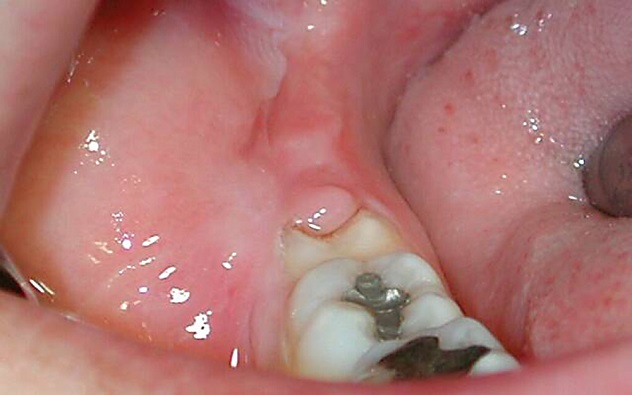Wisdom teeth also termed as third molars, usually start to erupt during the late teen years. The eruption process brings a lot of pain for some and the other not even feel that four new teeth are in the developing process inside their mouth. There are also few who don’t even have the third molars. They live their whole life with 28 teeth.
The reason behind why some adults feel pain is that they haven’t enough room for wisdom teeth in their mouth. The partial eruption of a wisdom tooth can create a flap of gum tissue next to the tooth. Such a condition is considered even more dangerous because the flap can trap bits of food and debris. It can turn into a hotbed for bacteria. This medical condition is termed as pericoronitis if the tissue around the tooth becomes inflamed. Pericoronitis can even occur around a wisdom tooth that is still completely under the gums and not visible.
Patients of pericoronitis usually go to the dentist, complaining of pain in the area of the back tooth. They think that they have a problem in that tooth but actually, it’s the wisdom tooth that is trying to erupt and don’t find enough space.
Pericoronitis is diagnosed during the clinical exam. Your mouth is generally examined and dentist looks for inflamed gum tissue in the area of the unerupted or partly erupted wisdom tooth. The gums may be red, swollen or draining fluid or pus.

Pericoronitis (Wisdom Tooth Infection Pain) Treatment at home
Continue to read and know more about the Pericoronitis such as its symptoms and how you can reduce this pain with the help of some natural remedies.
Symptoms
To know about symptoms is always important, only then diagnosis and treatment can be done. Some common symptoms of Pericoronitis include:
- Painful as well as swollen gum tissue in the area of the affected tooth.
- Bad smell or taste in the mouth is there
- Discharge of pus from the gum near the tooth
- In case of severe condition, you can also find swollen lymph nodes under your chin
- Swelling on the affected side of the face
- Swelling of the lymph nodes in the neck
- Difficulty opening the mouth
Pericoronitis Treatment
Antibiotics and warm salt water rinses are found useful to manage the Pericoronitis. It usually goes away in about one week, if you regularly rinse your mouth with salted warm water. But the readers who have already developed their wisdom teeth, may know that this pain mostly returns and not once but for many times. Because the tooth does not completely enter the mouth and food and bacteria keep building up under the gum.
Treatment of this medical condition is not simple since flap of gum tissue won’t go away until the wisdom tooth emerges naturally. It goes only if tooth emerges completely, the tissue itself is removed or the tooth is removed. Otherwise your dentist with headgear braces can only clean the area thoroughly by rinsing under the flap with water to remove bits of food and pus.
Some people ask that is it possible to prevent pericoronitis , the answer is yes but only to some extant like regular dental visits can help. Dentist used to keep the potential problem areas clean and additionally the dentist can also monitor the eruption of the third molars and determine the need for early extraction of these teeth. Removal of the wisdom teeth prior to eruption can prevent pain and infection.
If you have not taken the preventive measures and you have severe pain then now is the time to visit your dentist. Because your wisdom teeth may be impacted and embedded in the bone. In such a case, the oral surgeon will put an incision into the gums and remove the tooth or teeth in sections in order to minimize the amount of bone being removed.
Surgery is for a severe case but if the pericoronitis is limited to the tooth like if the pain and swelling have not spread and bearable then you can take care of you on your own. Follow the tips which are given below:
- Rinse your mouth with warm salted water 2 times a day.
- Make sure that the gum flap has no food trapped under it.
- Maintain overall good oral hygiene, brushing and flossing are must.
- Using ice pack on the area is a tested remedy that can be done at home to alleviate pain and swelling.
- Avoid all products which can be harmful for your oral heath like tobacco etc.


